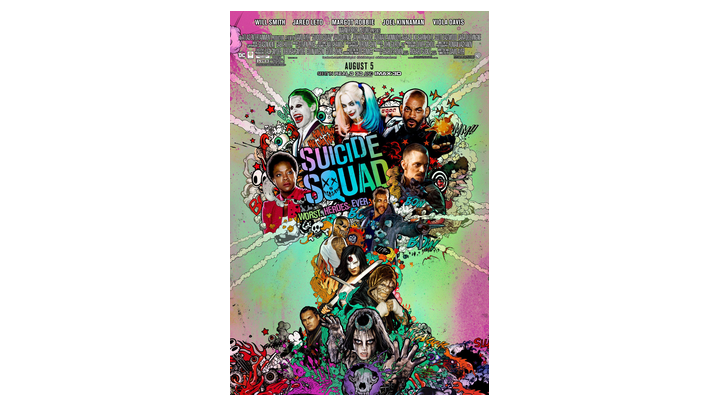What was once the “Suicide Squad” hate train has become something of a runaway, speeding endlessly along the tracks of social media and rolling over any amount of faint praise critics would find the generosity to give the film. It’s easy to find oneself climbing aboard.
But a movie sparking such a significant amount of outrage should be judged with an understanding of its context.
That is to say, “Suicide Squad” isn’t bad just because it’s a bad film. It’s bad because it panders to an audience that’s unaware of itself. It teaches its audience that women are “crazy” and that “crazy” people should be laughed at. It tries to tell us that women’s importance is defined by their relationships to the men around them.
Directed by David Ayer and starring Will Smith, Margot Robbie and Cara Delevingne, “Suicide Squad” opened Aug. 5 in U.S. theaters and grossed $267 million worldwide on its opening weekend. The film currently holds an aggregate rating of 26 percent on Rotten Tomatoes.
I would normally judge a film on its own merit without taking note of its context in popular culture. However, this film is the exception if ever there was one. The movie’s history speaks for itself. Since late 2014, there’s been a weekly — almost daily — landslide of goofy Joker-related news on social media. And I don’t mean D.C. teased the movie at intervals. I mean I played whack-a-mole with Jared Leto’s highlighter-colored tire head on Facebook for more than a year.
Headlines ranged from “Jared Leto used his Joker voice at a concert” to “Jared Leto sent used condoms and anal beads to his ‘Suicide Squad’ co-stars.” This kind of media bombardment got suspicious quick. Then I and others realized that this behavior was an attempt at building up to something that would hopefully be as memorable as Heath Ledger’s Joker.
Here’s the problem with that: Heath Ledger is dead, rendering the attempt awfully insensitive, and making the Joker role a competition of who can be the “craziest” is a middle finger to those of us who deal with mental illness day to day.
Even before its release, the movie, its crew and its ideas were exploiting mental illness in an entirely ableist fashion. Jared Leto and those working with him apparently weren’t self-aware enough to realize that plenty of social media users saw through their transparent cringe marketing.
But after everything, I gave the movie a chance.
Here’s an illustration of how that went: Harley Quinn, the “crazy” girl, gets punched in the face by Batman, who then gives her a mouth-to-mouth resuscitation that is clearly framed to look sensual. Moviegoers around me laughed. They also laughed when Deadshot told Angry Redneck Marine Character to smack his girlfriend’s ass to control her before she initiated a vague apocalyptic catastrophe.
To break down these two of perhaps a dozen other examples of misogyny and ableism, the inherent message here is that someone like Harley Quinn, a “hysterical” person, can be physically abused and then sexualized in the same breath. These two things happened inside the same minute. What’s more is that during the resuscitative “kiss,” Quinn is unconscious. The problems with that need no saying. Similarly with the latter example, the assumption that the writers and characters make is that women can be calmed with violence. Yes, it does sound ridiculous when said in those terms. That’s because it is.
The film vapidly attempts to paint Harley Quinn as a “strong female character,” which current-day writers and directors consistently try and fail to do because they always seem to miss the point of what that phrase actually means. Quinn is made out to have some degree of agency, as the film wants the viewer to believe that she’d gotten herself into her situation on her own. But anyone with a hole in their brain can see that the camera and characters ogle Quinn and treat her like an object; moreover, as is the case with the three — yes, three — other women in the film, Quinn’s continued existence depends on the help of a man.
That, right there, is a component in what makes this film a neurotypical male fantasy. Women are playfully subservient to men. They’re crazy and can be punched in the face for laughs or to calm them down. They can be kissed without consent. People with mental illness can be treated with indifference.
This is a bad film. There is no nuance or gray area to be found here. And the longer media giants like D.C. continue to simultaneously pander to impressionable young men and treat women like they’re subhuman, the longer we will have people growing up thinking these behaviors and worldviews are okay.
Media must be consumed with a critical eye or it is apt to shape how we approach life. To watch box office hits like “Suicide Squad” and not question every moment, every line, is to condemn oneself to ignorance.






























